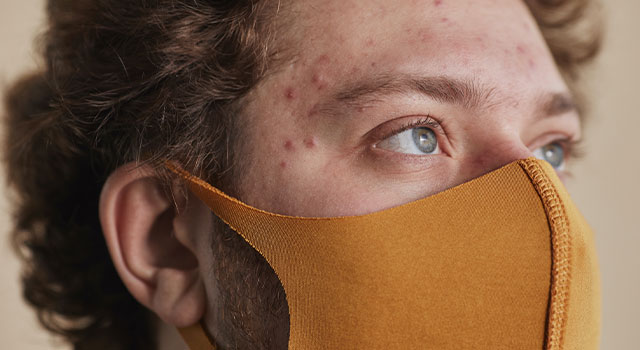 Accutane, generically called isotretinoin, is an oral medication that is widely prescribed to treat severe acne that hasn’t responded to other treatments.
Accutane, generically called isotretinoin, is an oral medication that is widely prescribed to treat severe acne that hasn’t responded to other treatments.
Although this drug often does a great job of reducing acne, it has several potential side effects that can affect many bodily systems, including the eyes.
Isotretinoin and Dry Eyes
Isotretinoin works by decreasing the size of the oil glands that secrete oil onto the skin. By reducing the production of the facial oils, the pores become less clogged and the amount of acne diminishes.
As the medication travels through the bloodstream, it also penetrates the eyelids’ meibomian glands, which produce the oil for tears.
These meibomian glands, which line the inner portion of the eyelids, play an important role in keeping the eyes hydrated and healthy by secreting oil to stabilize the tear film. When Accutane suppresses their function, the oil layer in the tear is inadequate, allowing excessive tear evaporation. As a result, the eyes dry out.
A 2012 study published in JAMA Dermatology analyzed the ocular effects of isotretinoin and concluded that taking it places patients at a significantly higher risk of experiencing a range of adverse ocular effects.
Common ocular conditions that were associated with this acne medication were dry eye syndrome, blepharitis, conjunctivitis, photosensitivity, contact lens intolerance and papilledema.
The researchers found that the ocular conditions resulted from changes to the cornea, eyelids, retina and meibomian glands. Additionally, the drug was found in the tear film and caused increased ocular irritation.
The good news is that these effects are often temporary, and resolve within a few months after completing treatment. One study, published in Optometry and Vision Science (2015), however, found that 1% of patients developed permanent meibomian gland dysfunction after taking isotretinoin.
How a Dry Eye Optometrist Can Help
Some dermatologists will refer their patients to an optometrist for a dry eye evaluation before prescribing isotretinoin to treat acne. If the patient already has signs of ocular surface disease or is taking other medications that interfere with tear production, the doctor may decide against prescribing isotretinoin.
We can help by thoroughly assessing your ocular condition to help your dermatologist determine the best acne treatment for you, as well as help you manage your dry eye symptoms.
If you or a loved one is currently taking or has taken isotretinoin and is experiencing symptoms of dry eye syndrome such as eye irritation or burning eyes, we can offer lasting treatment and solutions.
To schedule your dry eye consultation or learn more about our services, call Dry Eye Center At Advanced Eyecare Center today.
Q: Should I use lubricating eye drops while taking acne medication like isotretinoin?
- A: Lubricating eye drops may be an appropriate treatment for medication-induced dry eye syndrome However always consult with your optometrist before purchasing drops from the drugstore. The huge range of choices in your local pharmacy can be hard to navigate alone, and not all eye drops will be right for you. We can help guide you to the best eye drops for your condition.
Q: What are the common symptoms of dry eye syndrome?
- A: Common symptoms of dry eye syndrome include watery eyes, gritty eyes, burning or painful eyes, red and irritated eyes, mucus around the eyes, the inability to wear contact lenses, sensitivity to light and blurred vision. The frequency and severity of these symptoms can range greatly from patient to patient, and treatment will depend on the underlying cause of your symptoms.
Our practice serves patients from Redondo Beach, Manhattan Beach, Torrance, and Palos Verdes, California and surrounding communities.
